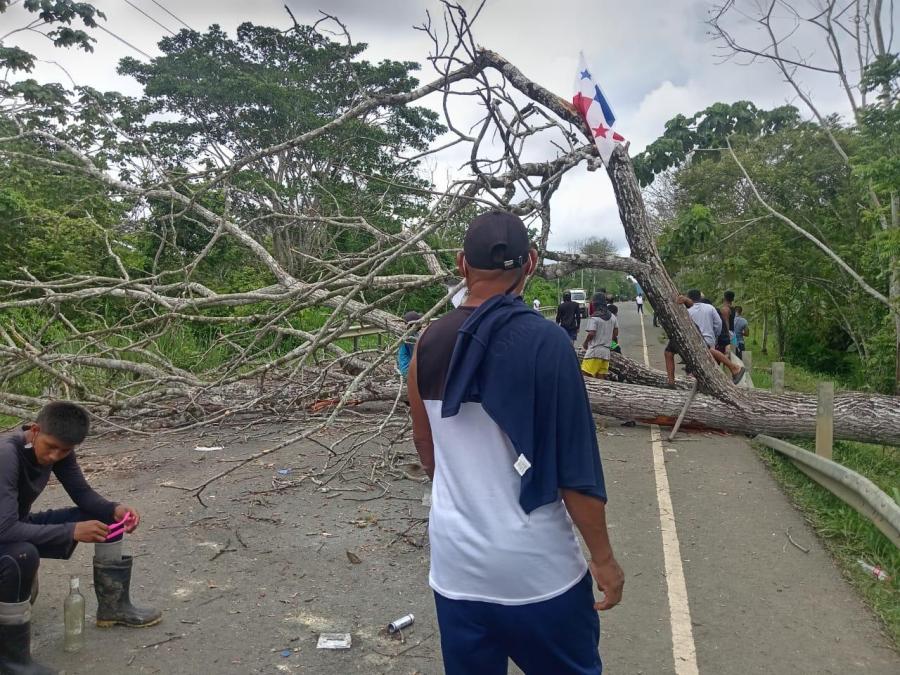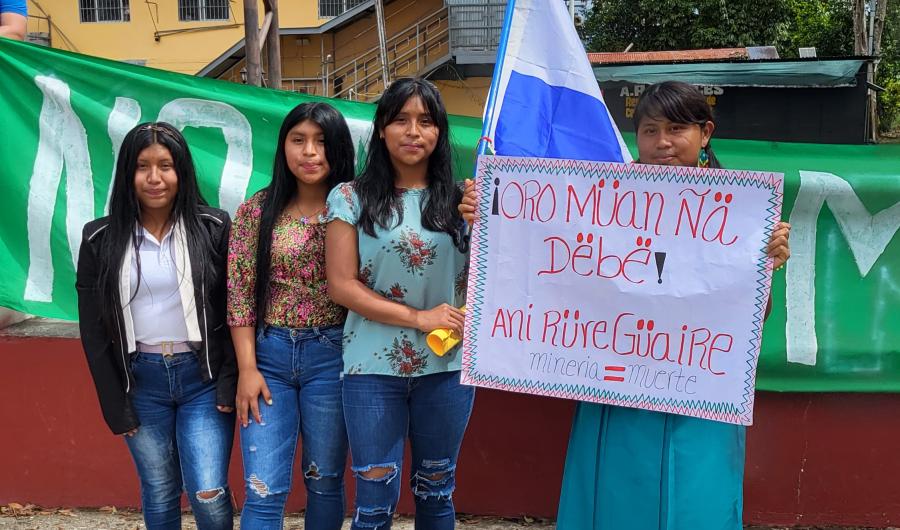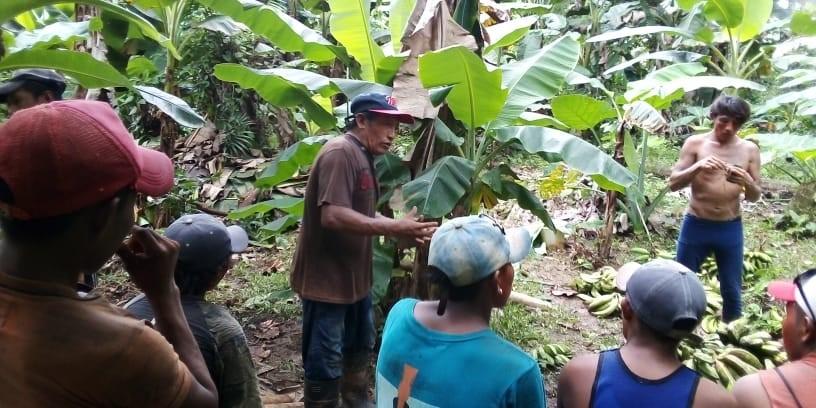
Keepers of the Earth Fund Grant Partner Spotlight: El Centro de Desarrollo Ambiental y Humano (CENDAH), Panamá
Faced with an acute food crisis due to the impacts of forced isolation during the COVID-19 pandemic, the response of the Nalunega and Wissubwala communities in the Gunayala region, in eastern Panama, was to turn to their traditional, sustainable, Gunadule agricultural practices. In 2020, the Center of Environmental and Human Development (Centro de Desarrollo Ambiental y Humano, CENDAH) implemented an agriculture project rooted in their Gunadule needs and values.
The nainu system (“own land” in Guna) is an alternative for the management of natural forests and consists of natural methods of reusing land, either through crop rotation or by reusing the same layer of organic material that remains after harvest. With this cultivation technique, it is not necessary to plow or till the land and it also avoids deforestation, because the Guna use wooded, coastal, and alluvial zones.
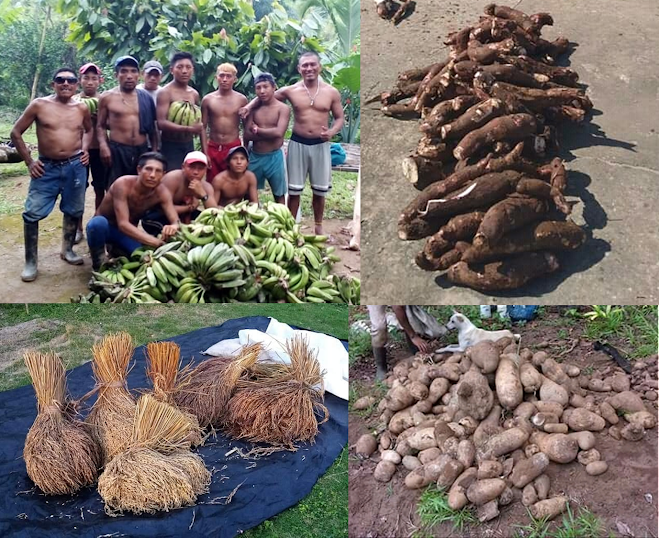
When the COVID-19 pandemic isolated the Gunadule communities established on coral islands in the Caribbean Sea, the food crisis was serious, since the crops are on land and community members must travel by sea to reach their nainus. Although some farmers continued to work under uncertain health conditions, their produce was not enough to ensure food security for the community. Moreover, the lack of supplies in local stores and mobility restrictions which prevented them from exchanging products with neighboring communities exacerbated the situation. In those days, CENDAH described the situation as “chaotic.”
CENDAH is a nonprofit community-based organization that supports Gunadule communities. CENDAH’s activities include research, education, and development projects and in their agricultural project they worked closely with a technician who has experience in the nainu food systems. CENDAH also adapted training workshops to the context and availability of the farmers. With a grant from Cultural Survival’s Keepers of the Earth Fund, they expanded their nainu agroforestry production; grew plantains/bananas, yuca and maize along with medicinal plants; held training workshops related to cultivating crops; distributed harvested foods among the communities; and received training on COVID-19 prevention and care.
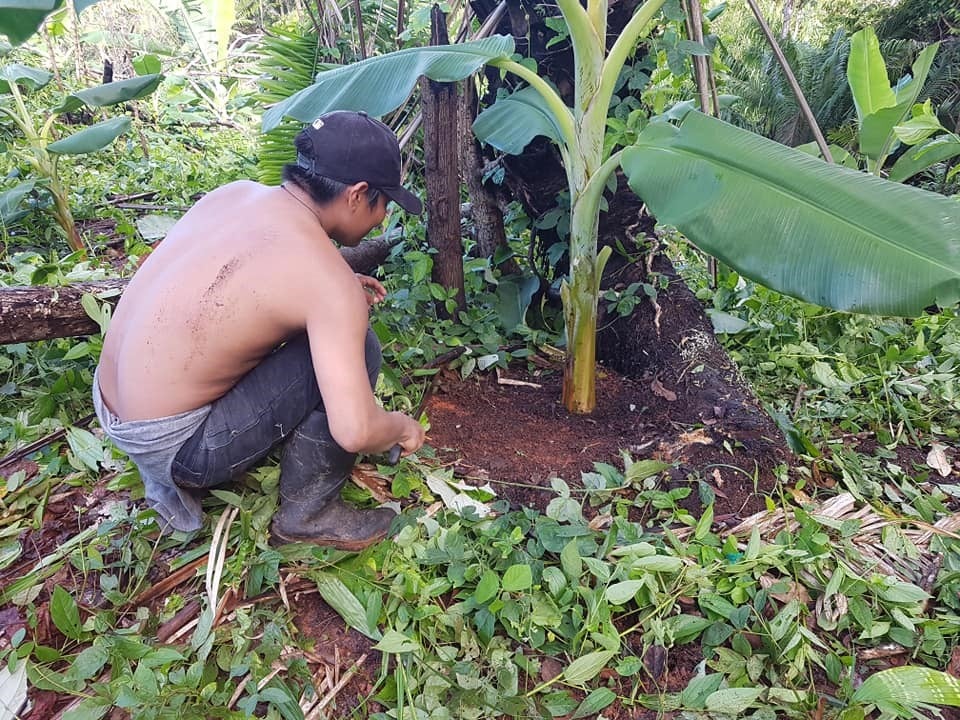
CENDAH faced various difficulties due to the pandemic and was forced to adapt its project to the changing circumstances, including addressing connectivity problems to communicate with communities and access to many places was restricted due to fear of contagion.
However, the need prevailed and CENDAH was able to deliver the seeds to farmers and also managed to successfully complete the entire project for the benefit of Gunadule communities. "The days of seed deliveries were exciting for the farmers, because it was just at the moment when they did not have access to seeds to continue their agricultural practices. It was a breath of hope" CENDAH says in their report. Also, trainings were held on improving plantain and yam cultivation, and workshops on COVID-19 and dulein (dule botanical medicine). In December of 2020, half a year before the harvest, CENDAH presented the results and completion of the initiative to their leadership. The six Sagladummagan (leaders), their secretaries, technicians, and directors of the two executive directors of the Guna People's Cultural Heritage Institute and the Kuna Yala Research and Development Institute attended the presentations.
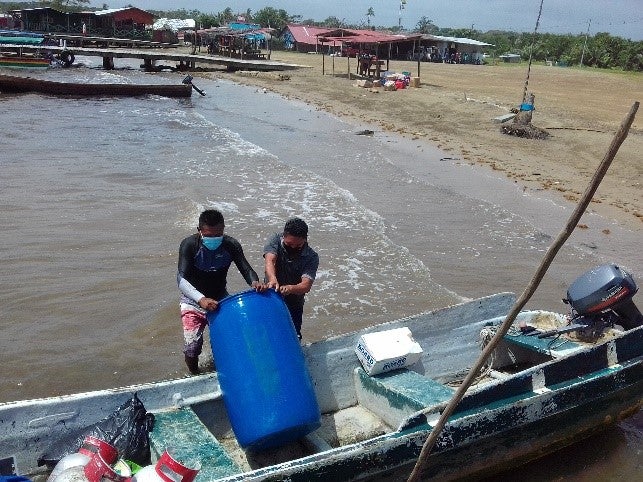
Faced with the food crisis, Gunadule leaders responded with commitment and focused work. "We selected two communities or groups of producers dedicated to working the fields because the truth is that organized groups work the land," says CENDAH. Farmers were the ones who led the initiative to overcome the obstacles of the pandemic. Despite fears and anxiety, they said that “if you stay still and do nothing, you become fragile and the virus attacks you. But when you work and eat, the virus does not reach you. Fear the man of the field.”
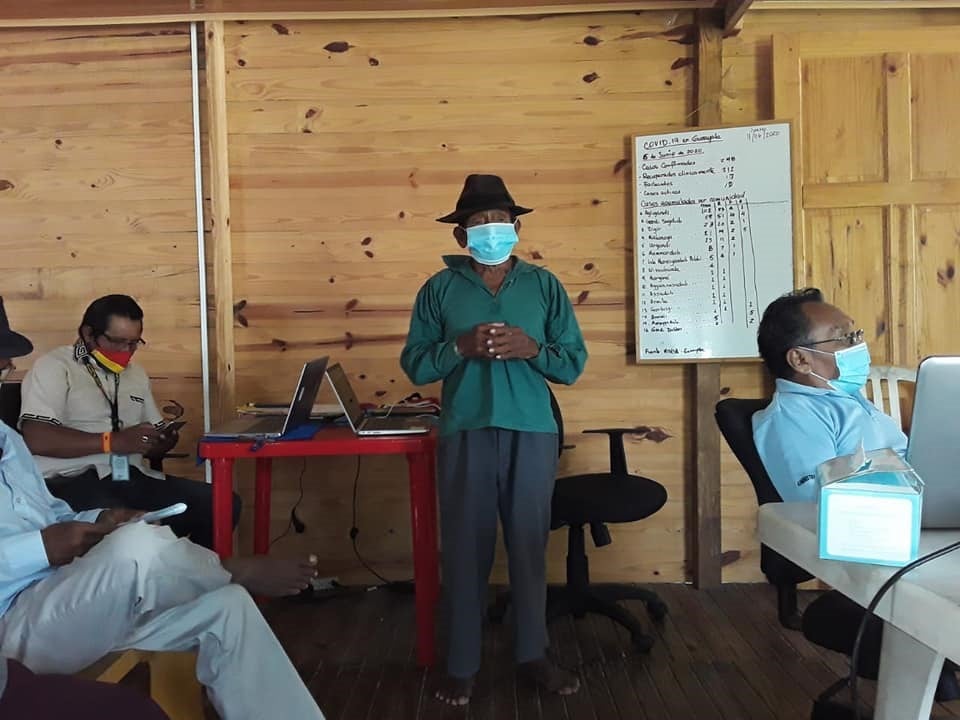
These two Gunadule communities overcame the pandemic with work and traditional knowledge: the nainu agricultural method and dulein medicine that “has spirit, is food, and is our strength as a Peoples.”
Keepers of the Earth Fund (KOEF) is an Indigenous Led Fund designed to support Indigenous Peoples’ community development and advocacy projects. Since 2017, KOEF has supported 177 projects in 35 countries totaling $764,317. KOEF provides small grants to grassroots Indigenous-led communities, organizations, and traditional governments to support their self-determined development projects based on their Indigenous values. Predicated on the United Nations Declaration on the Rights of Indigenous Peoples, Cultural Survival uses a rights-based approach in our grantmaking strategies to support grassroots Indigenous solutions through the equitable distribution of resources to Indigenous communities.
